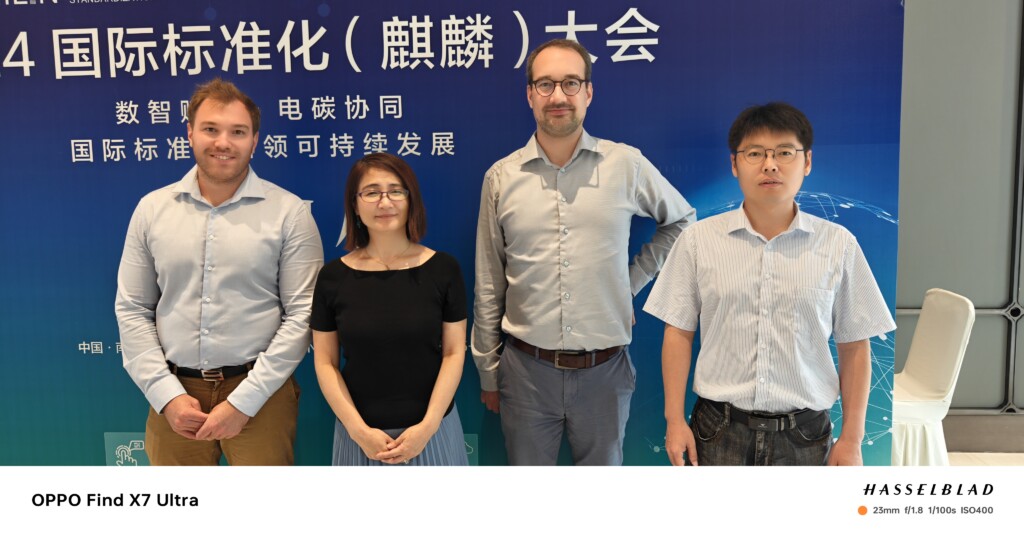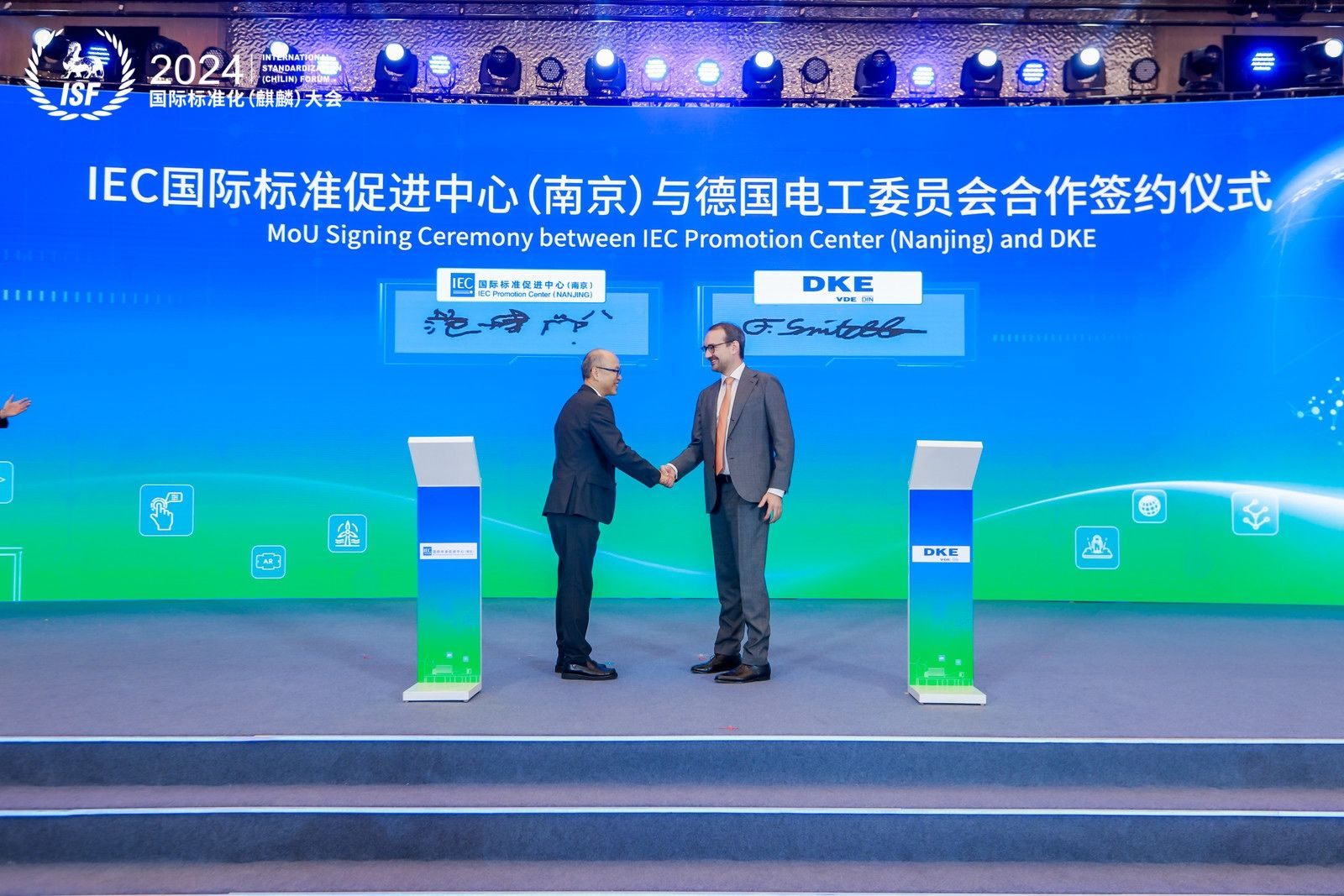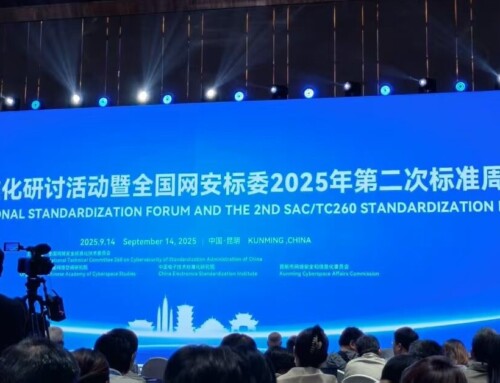On June 25, the 2024 International Standardization (Chilin) Conference, themed “Empowering with Digital Intelligence, Synergizing Electric and Carbon, Driving Sustainable Development with International Standards,” opened in Nanjing. The conference is a flagship standardization event developed by the IEC Promotion Center (Nanjing). It aims to provide an international platform for cooperation in standardization within the IEC platform, facilitate the influx of innovative ideas, and showcase the standardization achievements of Chinese enterprises to the international community.
Internationally, Florian Spiteller, Head of External Relations & Support at DKE, discussed Germany’s “All Electric Society” strategy; Christian Marian, DKE & CENELEC Project Manager International, introduced the IEC Global Relevance Toolbox; IEC Vice President and Chairman of the Standardization Management Board, Vimal Mahendru, introduced IEC’s work on sustainability; David Nix, IEC Digital Transformation Officer, presented on IEC’s smart standards and digital transformation; Xiaoman Yan, Director of Sustainability at BSI Greater China, delivered a speech titled “Sustainability Development Policy System and Its Impact on Chinese Enterprises”; and Marie-Elisabeth d’Ornano, Global Certification Director at LCIE Bureau Veritas, gave a presentation on “Current Status and Trends of Carbon Footprint Certification.”
On the Chinese side, Yinbiao Shu, former IEC President and President of the Chinese Society for Electrical Engineering, introduced methods for constructing product carbon footprint standards and certification systems based on time and zone-specific electric carbon factor analysis; Zhang Gang, Deputy Director of the China Standardization Expert Committee, explained the role of standards in promoting the development of new quality productivity; and several experts from the corporate sector shared their practices in energy transition.
At the conference, the IEC awarded China the secretariat of the IEC Sustainable Electrification Transport Systems Committee and established the “IEC International Standards Training Base.” The IEC International Standards Promotion Center (Nanjing) signed strategic cooperation agreements with the German Commission for Electrical, Electronic & Information Technologies (DKE) and the British Standards Institution (BSI) to jointly promote the formulation and implementation of international standards in the low-carbon field, strengthen standardization practices in product carbon footprints, and advance the vision of a low-carbon, fully electrified interconnected society. The IEC and the Standardization Administration of China (SAC) released a cooperation declaration to support the IEC International Standards Promotion Center (Nanjing) in carrying out related work to promote international standardization development.
The conference also saw the release of the “Future Grid Intelligent Sensing Technology” white paper, organized by China and co-developed by experts from China, Germany, the United States, Canada, and other countries. This white paper explores the development trends and technical routes of the digital grid, covering key areas such as power generation, transmission, transformation, distribution, consumption, and carbon emissions. It provides a standard layout for the application of micro-intelligent sensing technology in these fields and constructs an international standard framework for future digital grid sensing technology.

oplus_7471106





